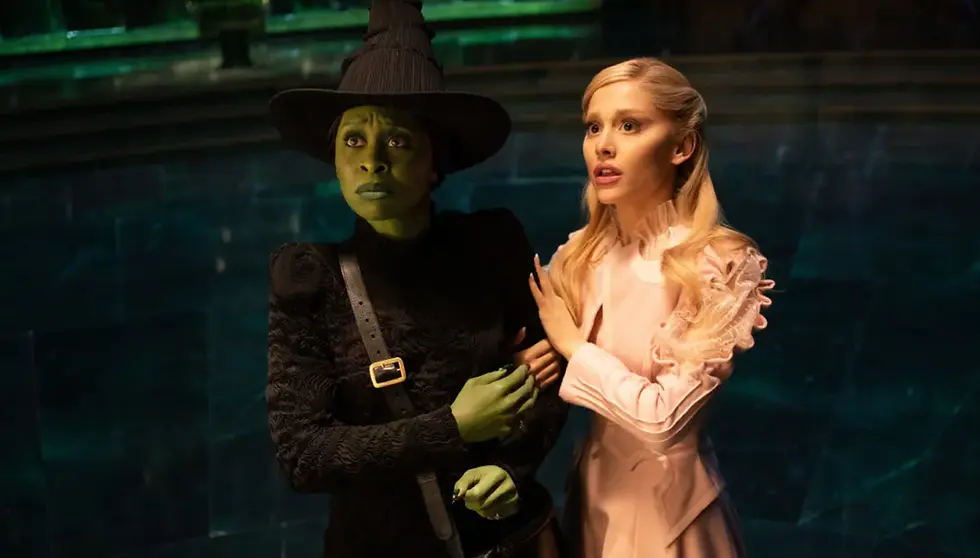Cable Street - Southwark Playhouse
- comaweng
- Mar 10, 2024
- 4 min read

The director of this show, Adam Lenson, has been very vocal about Jewish representation, or what he perceives to be the lack of it, on stage. Only Jewish actors should ever be permitted to play Jewish characters, he asserts. I’m not sure whether he’s one of those that believes in ‘historical verisimilitude’ but, quite frankly, I have questions. Why does his production of Cable Street have performances on Friday evening and Saturday afternoon? Isn’t Shabbat non-negotiable for people of the Jewish faith?
Further, other theatre industry figures have pointed out that as ‘religion or belief’ is a ‘protected characteristic’, it is illegal to discriminate on such grounds – that is, it is not permitted to grant or deny an actor a part in a show based on whether they are Jewish. It is even frowned upon, quite rightly, to ask what someone’s religion is at audition. I am reminded of an episode of The Apprentice some years ago, in which a candidate declared himself a “good Jewish boy”. Lord Sugar, in characteristically abrasive fashion, replied that perhaps the candidate’s pants should be pulled down (in order for Sugar to satisfy himself that the candidate had been circumcised in compliance with Jewish rules).
And if actors in a show that includes Jewish characters must be Jewish, this extends, in Lenson’s thinking, to the creatives and the production teams. His fury at certain productions that apparently didn’t have sufficient Jewish representation in these regards is well known in the industry. It takes a village, as pretty much everyone knows, to take a show to full production: should the venue’s electricians be Jewish? What of the bar staff? Come to think of it, should members of the audience coming to see a show with Jewish characters that must only be played by Jewish actors be Jewish themselves? What action will be taken against me, a member of the Church of England, for going to a Jewish-only show?
The hypocrisy hits the stratosphere when a black actor takes to the stage, alongside white actors, in the role of a member of the British Union of Fascists. Indeed, there’s a musical number, called ‘B. U. F. Anthem’, which sees them parading around strutting their stuff, and later there are promises of English jobs for English men. Taken to its logical conclusion, perhaps only fascists should play fascists, and perhaps only those who have actually been beheaded should play Anne Boleyn in the musical Six.
Anyway, there’s quite a lot of rap, and the songs are just about sufficiently varied, with three rounds of newspaper headlines and quotes from leaders published in various publications from the Jewish Chronicle to the Daily Mail, as well as a few ballads. But none of them are at all memorable, and a subplot involving a twenty-first century walking tour of the surrounding area detracts from the main story about the Battle of Cable Street in 1936. (The battle has its own Wikipedia page, so I don’t see any point in regurgitating the details here.) Take the walking tour out completely, and it would affect the overall narrative, but for the better.
The scene changes are done efficiently, thanks to a relatively uncluttered set, and despite multiple living spaces on stage, it was always clear where any given scene was set. The show is not, alas, just about a battle, but the circumstances and living conditions that led to active fascist as well as active communist political groups vying for people’s attention. As for Jewish members of the audience, this show tells them nothing new whatsoever. I wasn’t overly impressed by the pooh-poohing of the Jewish faith, either: when Yitzhak Scheinberg (Jez Unwin) and most of his family are participating in a religious service, one of his sons, Sammy (Joshua Ginsberg) insists they must abandon the service and join him immediately in doing whatever it is he wants to do. Bizarre, bizarre, bizarre.
Employment prospects are slim for Sammy Scheinberg, who believes, with justification, that his Jewish-sounding surname is being used against him by employers who deny him work. This sort of thing still goes on today, with people doing what Sammy did and changing their name (officially or unofficially) in an attempt to secure work. Then again, you could be called Ron Williams (Danny Colligan) and remain unemployed despite a daily job search – it’s strongly implied that East End employers were as snotty towards Northerners as they were towards Jews. It could, of course, simply be some kind of ‘old boys network’ going on, but the similarity in various characters’ situations is a (somewhat clunky) vehicle to set the battle up as being spearheaded by a broad coalition of Jews, communists and trade unionists, amongst others.
The battle occurs too early in the second half, leaving a long and drawn out aftermath as some of the anti-fascists party the night away – and it starts to feel like I’d been sat in the theatre for far longer than I had. What occurs after is, for some reason, more dramatic than the battle itself, in terms of what is witnessed on stage. Sammy does that thing that nominal religionists do, selectively quoting religious teachings, and for him, he would continue carrying out the ‘an eye for an eye and a tooth for a tooth’ principle until such time as the whole world was blind and toothless.
A ’will they, won’t they’ romance between two of the younger characters was about as believable as a parliamentarian’s speech in the House of Commons. The limitations of theatre staging make it difficult (impossible is such a strong word!) to portray the magnitude of the battle properly, so what really occurred is instead described, shouted out loud, with sparse details. Thank goodness for that Wikipedia page.




Comments